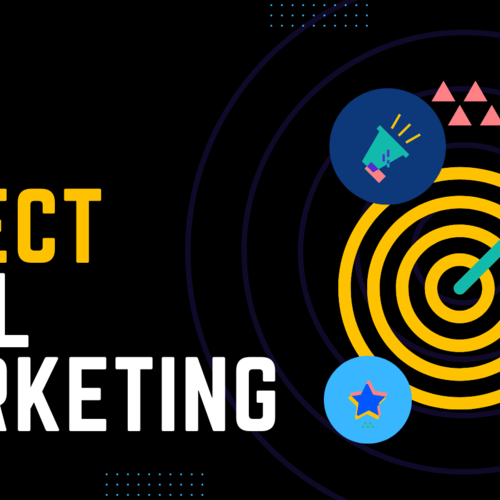In the high-stakes Bay Area real estate market, digital marketing is an essential tool for promoting listings. Digital platforms provide real estate professionals with the ability to reach a broad audience while targeting specific buyer demographics, on demand. However, with so many platforms and advertising options available, knowing where and how to focus your efforts is critical to maximizing the effectiveness of any digital marketing campaign.
This comprehensive guide will explore the various types of digital marketing available for real estate listings, highlight which platforms are most effective, discuss targeting strategies, and offer insights into paid advertising, viral marketing techniques, and content creation strategies. By the end of this article, you’ll have a better understanding of how a successful digital marketing campaign for Bay Area real estate can help get your real estate listing in front of the buyers, quickly.
Types of Digital Marketing for Real Estate
Digital marketing encompasses a wide array of strategies, platforms, and tools that can be leveraged to promote real estate listings. Below are the main types of digital marketing real estate agents might use to supplement the conventional MLS listing:
1. Social Media Marketing
Social media platforms such as Facebook, Instagram, Pinterest, LinkedIn, and TikTok offer real estate agents powerful tools for showcasing properties through photos, videos, and virtual tours. These platforms also offer paid advertising options that enable you to target specific demographics. Any digital assets created to help with marketing, such as photography and video as well as links to the full listing details on real estate platforms like Compass.com should be disseminated across all available social media channels.
2. Search Engine Marketing (SEM)
Google Ads is a popular form of search engine marketing that allows real estate agents to target buyers searching for homes. By bidding on keywords such as “homes for sale in Los Gatos” or “luxury real estate in Palo Alto,” agents can ensure that their listings appear at the top of search results. Search engine marketing is typically more expensive than other forms of digital marketing, however it is reputed to be more effective as it can target consumers who are actually looking to buy a property like the one being marketed.
3. Email Marketing
Email marketing remains one of the most direct ways to reach potential buyers. By building an email list of interested buyers and real estate agents, you can send out bulk messages to thousands of pertinent individuals in seconds. Even if you do not have a list of such people, you can easily pay another service to send your message to lists which they already own. One such company is propertyblast.com who specializes in sending out property listings to the thousands of Bay Area agents on their list.
4. Video Marketing
Video is an increasingly popular format for real estate marketing. Platforms such as YouTube, Facebook, Instagram, and TikTok allow you to showcase a property in fun and creative ways. While many REALTORs will create landscape-oriented videos for display on platforms like YouTube and Vimeo, it can also be quite effective to create more “short form” video content to share on as YouTube Shorts, Instagram Reels, and TikTok videos which showcase specific features or amenities of the property in an engaging and exciting way. These short clips have better potential to actually go viral than traditional “long form” videos.
5. Influencer Marketing
Collaborating with local influencers can help you tap into their audience and extend the reach of your listings. For example, partnering with a local lifestyle or real estate influencer who has a strong following can increase the visibility of your property. If there are such influencers in your community, and if you have a “buzzworthy” property, make sure they are invited to the open house, or even arrange a private showing for them. Consider allowing them to host a party of their own in your house to really get the clicks and likes flowing.
Most Effective Platforms for Advertising Real Estate Listings
With numerous digital platforms available, it can be challenging to decide where to focus your efforts. Below is a breakdown of the most popular platforms for real estate marketing and their strengths:
1. Facebook
Facebook is one of the most effective platforms for real estate marketing due to its extensive reach and advanced targeting options. With over 2.9 billion monthly active users, it allows you to target potential buyers by location and age, however the Department of Justice has limited Facebook’s targeting for housing-related advertising beyond that.
However, you can also create retargeting campaigns to reach people who have visited your website or viewed the listing, and it is also possible to upload a “custom audience” of specific individual prospective purchasers, and run ads directly at those individuals, or create a look-alike audience from that custom audience, which will be larger and may be just as useful.
Facebook Marketplace can also be a great place to get a listing seen, as Facebook does allow these posts to be boosted through paid advertising. Facebook users are able to quickly send messages through Facebook Messenger to the listing agent to make inquiries or set up a time to see the property in person.
And Facebook Groups can also be very effective to spread the word about a new listing, or when a listing has an open house, or if there is a price reduction. There are specific Facebook groups dedicated to real estate sales in most metro areas in the United States, and many small community Facebook groups (that are not specifically real estate related) welcome posts about homes for sale in the community.
2. Instagram
As a visual platform, Instagram is ideal for showcasing property photos, virtual tours, and lifestyle content. Instagram Stories and Reels can be especially effective in capturing attention with short, engaging content. Paid ads on Instagram also provide robust targeting options similar to Facebook, since Facebook is the parent company of Instagram. Shorter clips with punchier and “sexier” content are what’s likely to work best on this platform.
3. Pinterest
While not as commonly used as Facebook or Instagram, Pinterest has long been popular for real estate marketing. Many users turn to Pinterest for home design inspiration, and real estate professionals can use this platform to showcase listings. Like Facebook, Pinterest ads also allow for interest-based targeting. With Pinterest, you’d do better to focus on specific aspects of the home, such as the kitchen, bathroom, landscaping, views, etc, that are eye-catching and would garner likes and shares.
4. YouTube
YouTube is the go-to platform for video marketing. Posting property tours is very common here, and can help you reach a broader audience. YouTube ads can be targeted based on location, demographics, and user behavior, making it a powerful platform for real estate marketing. While “long form” (90-180 second) “virtual tour” videos are very common, they often do not get thousands of views. These videos are mostly watched by people who discover the listing through some other means, and then watch the video on YouTube. However, YouTube also as “shorts” which are similar to Instagram Reels and TikTok – which can generate thousands of views in a short period of time, and may be helpful in generating buzz about a property.
5. Google
Google Ads allows real estate agents to target buyers who are actively searching for homes. By bidding on relevant keywords or locations, you can ensure that your listings show up at the top of Google search results. Additionally, Google’s Display Network allows you to show your ads on websites across the internet, reaching users based on their online behavior. Google ads allow for very fine-grained targeting and is very helpful for getting your listing seen by the buyer persona you are targeting.
6. LinkedIn
LinkedIn is particularly useful for targeting professionals and high-income individuals. While it’s not as visually oriented as Instagram or Pinterest, it can be a valuable platform for promoting luxury real estate listings or connecting with other industry professionals, such as developers and real estate investors. However, LinkedIn can be used to target ads at people who work for specific companies. For example, you could target a Cupertino real estate listing at people on LinkedIn who work for Apple.
7. TikTok
TikTok’s short-form video content is highly engaging and can be an effective way to reach buyers, especially in a younger demographic. Real estate agents can create quick property tours, highlight unique features of a home, or showcase local neighborhood amenities. While the platform may not have as advanced targeting options as Facebook or Google, it offers viral potential. The right video on TikTok can catch fire and get your listing in front of a lot of people very quickly.
8. Reddit
Reddit is an excellent platform for community engagement and niche marketing. Subreddits like r/realestate or local Bay Area subreddits like r/BayAreaRealEstate or r/Sunnyvale allow you to engage directly with potential buyers, share valuable information, and promote your listings organically. Some subreddits will not want this kind of information to be shared, but you can certainly do paid Reddit advertising and target those subreddits.
9. Threads
As a newer platform, Threads is still finding its place in the digital marketing ecosystem. While it’s primarily text-based, it could be used to engage with your audience and share market insights or updates on your listings. You can, however, post photos and video directly to Threads, and its tight coupling with Instagram will help you get the word out as well.
Best Platforms for Targeting Options
When it comes to targeting potential homebuyers, Facebook and Google are the most robust platforms – although due to restricts placed on Facebook by the Department of Justice, Google has quite an edge when it comes to targeting buyers. But both offer targeting capabilities that can help you reach an audience based on age and geography, while Google also offers targeting based on demographics, interests, and behaviors (such people who don’t own a home already).
1. Facebook & Instagram Ads
Facebook’s advanced targeting options allow you to create audiences based on:
- Location: Target by a 15+ mile radius around an address
- Age and income: Narrow your audience to high-income households or those in a specific age range.
- Interests and behaviors: Target users who have shown interest in real estate, home buying, or moving.
- Retargeting: Create campaigns that target users who have already visited your website, engaged with your Facebook page, or viewed your listings.
- Custom Audience: you can upload your own data set of specific homebuyers (for example, a bought list from a data broker) and show them ads.
2. Google Ads
Google Ads enables real estate agents to target:
- Keywords: Reach people actively searching for homes using specific search terms (e.g., “homes for sale in Santa Clara”).
- Geotargeting: Show ads to users within specific geographic areas.
- Demographics and behaviors: Target based on age, income, and user behavior (such as visiting real estate websites).
Paid Advertising vs Organic Reach
Paid advertising is not the only way to market real estate listings, but it is often the most effective way to ensure your content reaches a targeted audience. Here’s a breakdown of both paid and organic strategies:
1. Paid Advertising
Paid ads guarantee that your listings are seen by the right people, whether through Google search results or social media feeds. Paid ads can provide immediate exposure and allow for precise targeting based on demographics, location, and interests. Paid digital advertising is the fastest and surest way to leverage these platforms to get a home listing in front of the right buyers, when you need it.
2. Organic Marketing
Organic marketing involves creating content that attracts buyers without paying for ads. This includes:
- Posting regular updates and listings on social media.
- Writing blog posts optimized for SEO.
- Engaging with your audience on platforms like Reddit or Quora.
- Utilizing email marketing to reach potential buyers.
Organic marketing can take longer to build momentum, but it can still be highly effective, especially if you have a strong following or produce content that adds value (such as market insights, neighborhood guides, or home-buying tips).
Organic marketing can be especially helpful if you have something of a niche listing – for example, a horse property, a home with a lot of garage space that might be used by a car collector, a music recording studio, a boutique vineyard, pickle ball court, full-size home gym, golf driving range or putting greens, boat dock, etc.
Techniques to Go Viral
While “going viral” is never guaranteed, there are strategies you can employ to increase the chances that your content will be widely shared:
1. Create Engaging, Shareable Content
Content that is informative, entertaining, or emotionally resonant is more likely to be shared. For real estate, this could mean highlighting unique features of a home, telling a story about the property’s history, or creating videos that showcase the lifestyle buyers can expect.
2. Leverage Current Trends
Stay on top of social media trends, whether it’s using popular hashtags, challenges, or viral music on platforms like TikTok and Instagram Reels. Tailoring your content to current trends can help it gain more visibility.
3. Use Influencers
Collaborating with local influencers can help your content reach a wider audience. Influencers who specialize in home décor, lifestyle, or local Bay Area content can share your listings with their followers, helping to increase your visibility. You may have to pay influencers to get access to their audience, but this could be money very well spent.
Ensuring Your Digital Marketing Reaches the Right Audience
Ensuring that your digital marketing content reaches the right audience is crucial for maximizing its effectiveness. Here are several strategies to make sure your listings are being seen by the right buyers:
1. Use Targeted Ads
As mentioned earlier, Reddit, LinkedIn, Pinterest, Facebook, Instagram, YouTube and Google Ads offer highly targeted advertising solutions. By utilizing these platforms’ audience segmentation tools, you can ensure your ads are shown to people who are most likely to be interested in your property. For example:
- Location targeting: Ensure that your ads are displayed to people in or around the specific areas of the Bay Area where your property is located.
- Interest targeting: Reach individuals who have shown an interest in real estate, home buying, or related activities (such as mortgage calculators or moving services).
- Behavioral targeting: Target people based on recent online behavior, such as visiting real estate websites such as Zillow or Redfin or looking for home improvement tips such as might be found on Houzz.com.
2. Retargeting Campaigns
Retargeting involves displaying ads to individuals who have already visited your website or interacted with your social media content. This strategy can help convert interested viewers into buyers by keeping your listings in front of them. Retargeting works across multiple platforms, including Facebook, Instagram, and Google (and all their partner websites and networks), ensuring that interested buyers see your property across different websites and apps.
3. Leverage CRM and Email Lists
Your agent’s existing client database is a goldmine of potential buyers. Email marketing campaigns that target buyers who have shown previous interest in the Bay Area market, attended your open houses, or signed up for their newsletter can be an effective way to keep a listing in front of potential buyers.
How to Create Content That Gets Shared
Content that is educational, entertaining, or emotionally engaging tends to be shared more frequently. Here are some strategies to encourage sharing:
1. Tell a Story
Rather than just listing a home’s features, tell a story that resonates with potential buyers. For instance, you might focus on the lifestyle that comes with living in the Bay Area—access to top-tier schools, proximity to tech companies, scenic parks, and the thriving cultural scene. A well-crafted narrative makes your listing more than just a property; it becomes an aspirational goal.
2. Utilize Video Content
Video content is one of the most shareable forms of digital media. According to a study by HubSpot, video content generates 1200% more shares than text and image content combined. Creating engaging video tours, neighborhood guides, and even live Q&A sessions on platforms like YouTube, Instagram, TikTok or Facebook can help your content gain more exposure.
3. Encourage User-Generated Content
User-generated content (UGC) is a powerful tool for real estate marketing. Encourage satisfied clients to share their experience working with you or living in one of your listed properties. Positive testimonials, images, and reviews from clients can lend authenticity to your marketing and encourage others to share your content.
Budgeting for a Digital Marketing Campaign
The cost of digital marketing can vary greatly depending on the platforms you use, the extent of your campaigns, and the competitiveness of the market. Here’s how you can think about budgeting for a digital marketing campaign for real estate listings:
1. Platform Costs
- Google Ads: The cost of Google Ads depends on the competitiveness of your targeted keywords. For real estate in the Bay Area, the cost-per-click (CPC) can range from $1 to $4 per click, but for highly competitive terms like “homes for sale in San Francisco,” costs can rise to $10 or more per click.
- Facebook and Instagram Ads: These platforms offer cost-effective options, with CPCs typically ranging from $0.50 to $3, depending on the level of targeting and competition.
- YouTube Ads: Video ads on YouTube can have CPCs ranging from $0.10 to $0.30. The cost may increase if you are targeting specific geographies or demographics.
- LinkedIn Ads: LinkedIn is generally more expensive than other platforms, with CPCs often ranging from $5 to $10. However, it may be worth the cost for targeting professionals or high-income buyers.
2. Campaign Size and Duration
For a smaller-scale listing, spending $500 to $1,000 on a 1-2 week campaign might be enough to generate significant leads. For larger, luxury properties, or when targeting a highly competitive area like Palo Alto or Atherton, a more robust budget of $2,000 to $5,000 may be necessary to maximize reach and effectiveness over several weeks.
3. Organic vs. Paid Content
It’s important to remember that organic marketing, like SEO, social media posting, and email marketing, can complement paid campaigns and reduce overall costs. By building a strong organic presence, you can rely less on paid ads over time and focus on building relationships with your audience.
Conclusion: Crafting a Successful Digital Marketing Strategy
Digital marketing offers endless opportunities for real estate professionals looking to promote listings in the Bay Area. Whether you choose to invest in paid advertising, create engaging organic content, or a combination of both, the key is understanding your target audience and delivering content that speaks to their needs and interests.
Platforms like Facebook, Instagram, Google, and YouTube are some of the most effective tools for reaching potential buyers, thanks to their targeting capabilities and broad reach. However, for a campaign to truly stand out, focus on creating high-quality, shareable content that tells a compelling story, engages viewers visually, and provides value to the audience.
To ensure your campaign is successful, start by setting clear goals, establish an appropriate budget that will actually move the needle, and continually monitor and adjust your strategies based on performance. By leveraging the right mix of platforms and strategies, you can ensure your digital marketing efforts are reaching the right buyers, maximizing exposure, and ultimately leading to faster and more profitable sales.
Gorgeous Santana Row Homes for Sale
2
3
4
5
6
7
8
9
10
11
12
13
14
15
16
17
18
19
20
21
22
23
24
25







